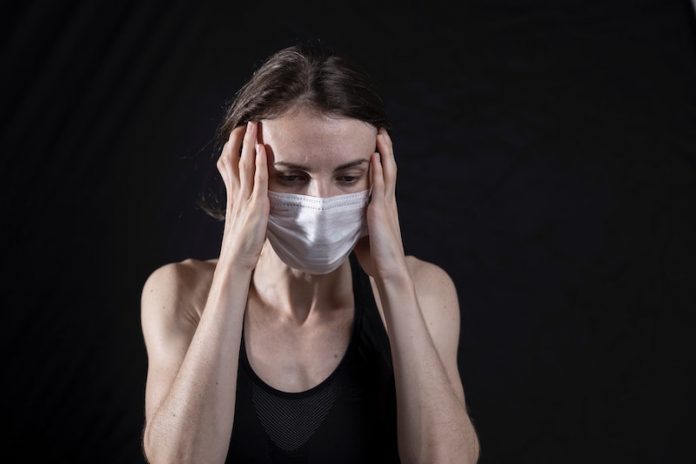
Scientists from UCLA found a surprising clue to the ‘long COVID’ syndrome.
They found an abnormally suppressed immune system may be to blame, not a persistently hyperactive one as they had suspected.
The research is published in Clinical Infectious Diseases and was conducted by Dr. Otto Yang et al.
COVID-19 is known to be caused by hyperactive immune responses against SARS-CoV-2 resulting in damage to lungs and other organs, and sometimes what is known as a “cytokine storm” that overwhelms the individual, which could lead to severe illness and death.
In a group of people who recover from the initial illness, various symptoms persist, such as fatigue, mental haziness, and shortness of breath, which can be debilitating and last for months.
This is generally classified as long COVID, although symptoms vary widely and this syndrome is probably not a single disease entity.
In the study, the team examined the effect of the monoclonal antibody Leronlimab on long COVID-19 in 55 people.
Leronlimab is an antibody that attaches to an immune receptor called CCR5 that is involved in inflammation.
Participants were assigned to receive weekly injections of the antibody or a saline placebo for eight weeks.
Over the time the team tracked any changes in 24 symptoms associated with long COVID, which also included loss of smell and taste, muscle and joint pain, and brain fog.
The researchers originally thought that blocking CCR5 with the antibody would dampen the activity of an overactive immune system after COVID-19 infection.
But they found just the opposite. Patients who improved were those who started with low CCR5 on their T cells, suggesting their immune system was less active than normal, and levels of CCR5 actually increased in people who improved.
This leads to the new hypothesis that long COVID in some persons is related to the immune system being suppressed and not hyperactive.
The findings suggest a complex role for CCR5 in balancing inflammatory and anti-inflammatory effects, e.g. through T regulatory cells.
Sign up for our newsletter for more information about this topic.
If you care about COVID, please read studies new oral drug that may prevent death from COVID-19, and these drugs work well against BA.2 Omicron variant.
For more information about COVID, please see recent studies that people with these mental diseases have lower COVID-19 risk, and results showing scientists find a universal antibody therapy for all COVID-19 variants.
Copyright © 2022 Knowridge Science Report. All rights reserved.



